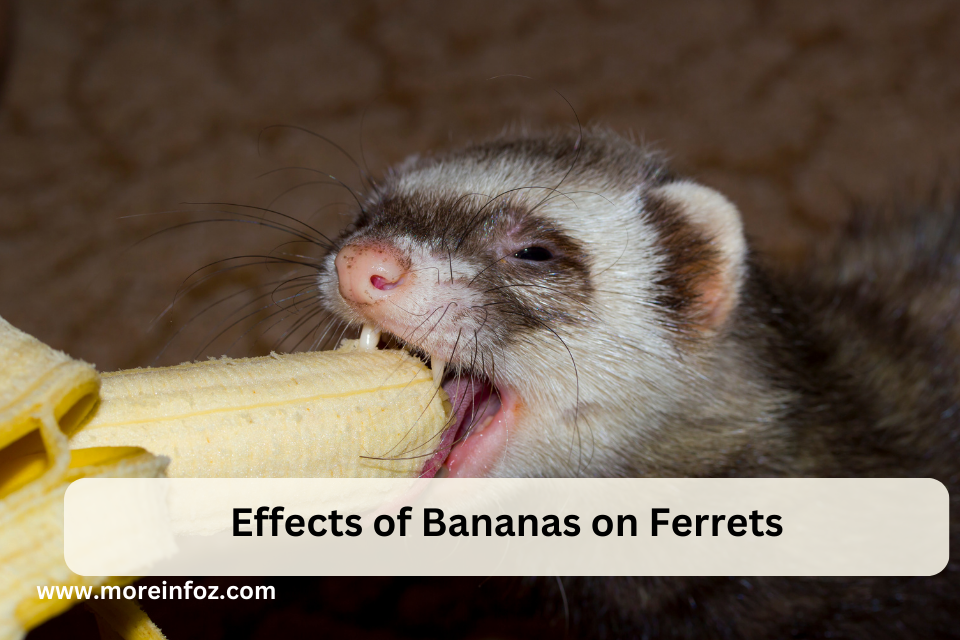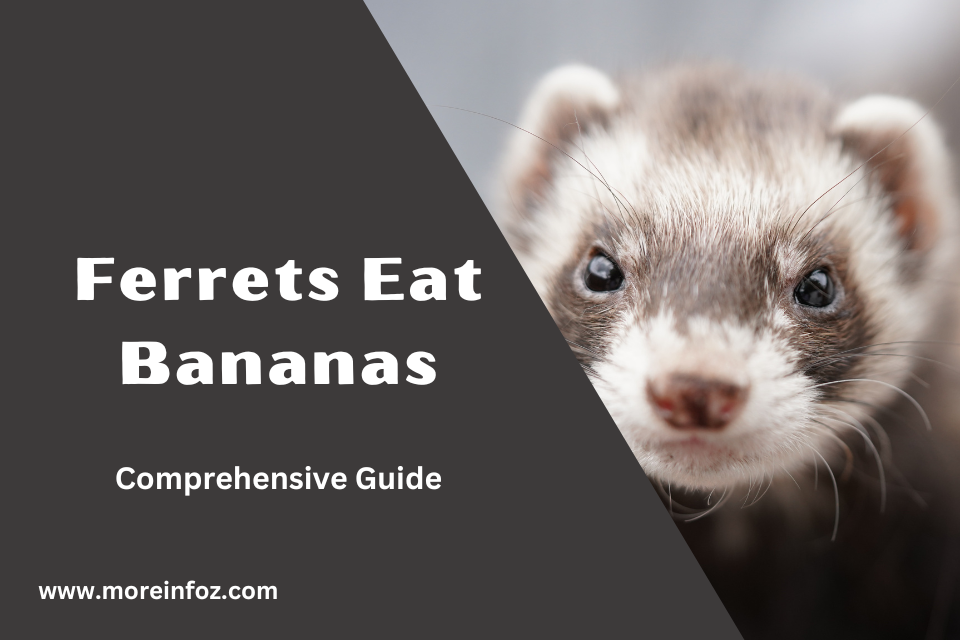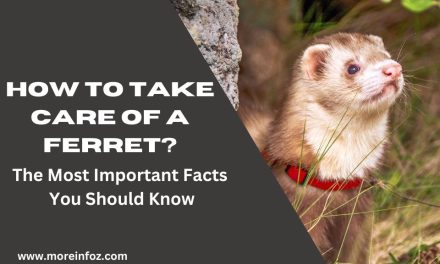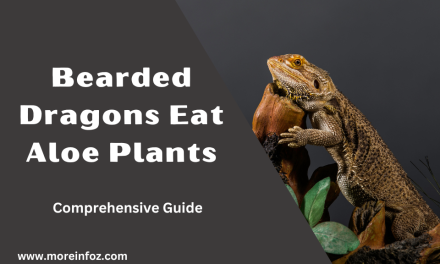Ferrets are adorable and playful creatures that make great pets. As responsible pet owners, it’s important to ensure that our furry friends are getting the proper nutrition they need to stay healthy and happy. One question that often arises is whether or not ferrets can eat bananas.
The answer is yes, ferrets can eat bananas in moderation. Bananas are a good source of potassium, vitamin C, and fiber, all of which are important for a ferret’s diet. However, it’s important to remember that bananas are high in sugar and should only be given as an occasional treat. Overfeeding bananas or any other sugary treats can lead to health problems such as obesity and dental issues.
As with any new food, it’s important to introduce bananas slowly and in small amounts to ensure that your ferret doesn’t have an adverse reaction. It’s also important to remember that bananas should not replace a ferret’s regular diet of high-quality ferret food. By keeping moderation in mind, bananas can be a safe and enjoyable treat for your furry friend.
Understanding Ferrets’ Diet
Ferrets are obligate carnivores, which means that they require a diet that is high in protein and fat. Their digestive system is not designed to process fruits, vegetables, or grains like omnivores or herbivores. Therefore, it is essential to provide them with a balanced diet that meets their nutritional needs.
A healthy ferret diet should consist of high-quality animal protein, such as chicken, turkey, or lamb, and fat. It should also contain a small amount of fiber, which can be obtained from sources like whole prey, egg, or beet pulp. Ferrets require a minimum of 30-40% protein and 15-20% fat in their diet.
It is important to note that feeding your ferret a diet that is too high in carbohydrates or fiber can lead to health problems, such as insulinoma, dental disease, and gastrointestinal issues. Therefore, it is best to avoid feeding them fruits, vegetables, or grains, which are high in carbohydrates and fiber.
In summary, understanding ferrets’ diet is crucial to their health and well-being. Providing them with a balanced diet that is high in animal protein and fat and low in carbohydrates and fiber is essential. Always consult with your veterinarian or a ferret nutrition expert to ensure that your ferret’s diet meets their nutritional needs.
Can Ferrets Eat Bananas?
As ferret owners, we always want to make sure that our pets are getting the best nutrition possible. But what about bananas? Can ferrets eat bananas as part of their diet?
The answer is yes, ferrets can eat bananas in moderation. Bananas are a good source of potassium, vitamin C, and fiber, which are all important nutrients for ferrets. However, bananas are also high in sugar, so they should only be given as an occasional treat.
It’s important to note that bananas should never be the main component of a ferret’s diet. Ferrets are obligate carnivores, which means that they require a diet that is high in protein and fat. While bananas can be a healthy addition to their diet, they should never replace meat-based foods.
When feeding your ferret bananas, it’s important to remove the peel and cut the fruit into small pieces. This will make it easier for your ferret to eat and digest. It’s also important to monitor your ferret’s reaction to bananas. Some ferrets may have trouble digesting the fruit, which can lead to diarrhea or other digestive issues.
In conclusion, while bananas can be a healthy addition to your ferret’s diet, they should only be given as an occasional treat. As always, it’s important to consult with your veterinarian before making any significant changes to your ferret’s diet.
Effects of Bananas on Ferrets

Nutritional Value
Bananas are a good source of vitamins and minerals that are essential for the growth and development of ferrets. They contain vitamin C, vitamin B6, potassium, and fiber. These nutrients are important for maintaining a healthy immune system, promoting digestion, and preventing diseases.
However, it is important to note that bananas are high in sugar and carbohydrates. Ferrets have a short digestive tract and a high metabolism, which means that they need a diet that is high in protein and low in carbohydrates. It is recommended that bananas should only be given to ferrets as an occasional treat and not as a regular part of their diet.
Potential Risks
While bananas are generally safe for ferrets to eat, there are some potential risks that should be considered. The high sugar content in bananas can lead to obesity and dental problems in ferrets. Overconsumption of bananas can also cause diarrhea and other digestive issues.
It is important to remember that ferrets have unique dietary needs and should be fed a balanced diet that is specific to their species. While bananas can be a healthy treat for ferrets in moderation, they should not be relied upon as a primary source of nutrition.
In conclusion, bananas can be a healthy addition to a ferret’s diet when given in moderation. However, it is important to be mindful of the potential risks and to ensure that a balanced diet is maintained.
Alternatives to Bananas for Ferrets
While bananas can be a healthy treat for ferrets in moderation, it’s important to offer a variety of foods to ensure a balanced diet. Here are some alternatives to bananas that you can offer to your ferret:
Meat-based treats
Ferrets are obligate carnivores, which means they need a diet that is primarily made up of meat. Meat-based treats can be a great alternative to bananas for ferrets. Some options include:
- Cooked chicken or turkey
- Freeze-dried chicken or duck
- Raw or cooked beef or lamb liver
- Cooked eggs
Make sure to remove any bones, skin, or fat before offering these treats to your ferret.
Fruits and vegetables
While fruits and vegetables should not make up the majority of a ferret’s diet, they can be offered as occasional treats. Here are some options:
- Blueberries
- Raspberries
- Strawberries
- Cooked sweet potato
- Cooked pumpkin
- Cooked carrots
Make sure to wash all fruits and vegetables thoroughly and remove any seeds or pits before offering them to your ferret.
Commercial ferret treats
There are many commercial ferret treats available that are formulated specifically for ferrets. These treats can be a great alternative to bananas and other human foods. Some popular options include:
- Ferretone
- Bandit treats
- N-Bones
- Marshall’s Uncle Jim’s Duk Soup
When offering commercial treats, make sure to read the ingredients list and choose treats that are high in protein and low in sugar.
Overall, offering a variety of foods is key to ensuring that your ferret gets all the nutrients they need. While bananas can be a healthy treat, don’t be afraid to mix it up and offer other options as well.
How to Feed Bananas to Ferrets
Feeding bananas to ferrets can be a healthy and tasty treat, but it’s important to do it right. Here are some tips to make sure your ferret enjoys bananas safely:
- First, make sure the banana is ripe and soft. Green or unripe bananas can be hard to digest and cause stomach upset.
- Peel the banana and cut it into small, bite-sized pieces. This will make it easier for your ferret to eat and reduce the risk of choking.
- Offer the banana to your ferret as a treat in moderation. Too much fruit in a ferret’s diet can lead to diarrhea and other digestive problems.
- Monitor your ferret closely while they eat the banana to make sure they don’t choke or have any adverse reactions. If you notice any signs of discomfort or illness, stop feeding bananas immediately and consult with your veterinarian.
In conclusion, feeding bananas to ferrets can be a fun and healthy way to treat your furry friend. Just remember to follow these simple steps to ensure a safe and enjoyable experience for everyone involved.
Conclusion
Based on our research, ferrets can eat bananas in moderation. Bananas are a good source of vitamins and minerals, such as potassium and vitamin C, which can be beneficial for ferrets. However, bananas are also high in sugar and should not be a regular part of a ferret’s diet.
It is important to note that ferrets are obligate carnivores and require a diet high in protein and fat. While fruits and vegetables can be offered as occasional treats, they should not make up a significant portion of a ferret’s diet.
If you choose to offer your ferret bananas, make sure to only give them small pieces and monitor their intake. Too much fruit can lead to digestive upset and other health issues.
Overall, while bananas can be a safe and healthy treat for ferrets, they should not be a staple in their diet. As with any new food, it is important to introduce bananas slowly and in small amounts to ensure your ferret can tolerate them.
Frequently Asked Questions
What can ferrets eat as a treat?
Ferrets can eat a variety of treats, including cooked meat, eggs, and certain fruits and vegetables. However, it’s important to limit treats to no more than 10% of their daily diet to avoid health problems.
What fruits are safe for ferrets?
Ferrets can eat small amounts of certain fruits as a treat, including bananas, strawberries, and blueberries. However, fruits should be given in moderation due to their high sugar content.
What human food can ferrets eat?
While ferrets require a diet that is high in protein and fat, they can occasionally eat small amounts of cooked meat, eggs, and certain fruits and vegetables. However, it’s important to avoid giving them human food that is high in salt, sugar, or fat.
Can ferrets eat carrots?
Carrots are safe for ferrets to eat in small amounts as a treat. However, they should not make up a large part of their diet, as they are low in protein and fat.
Can ferrets eat eggs?
Ferrets can eat cooked eggs as a treat, but they should not be given raw eggs as they can carry harmful bacteria.
What vegetables can ferrets eat?
Ferrets can eat small amounts of certain vegetables as a treat, including cooked sweet potato, green beans, and peas. However, vegetables should not make up a large part of their diet, as they are low in protein and fat.





